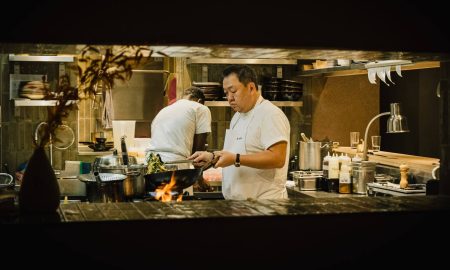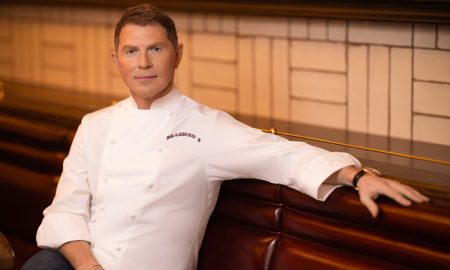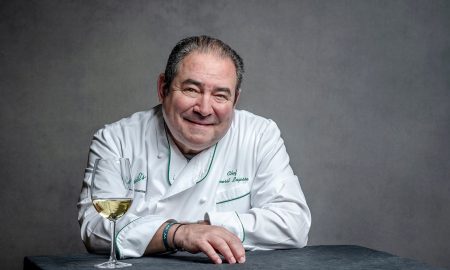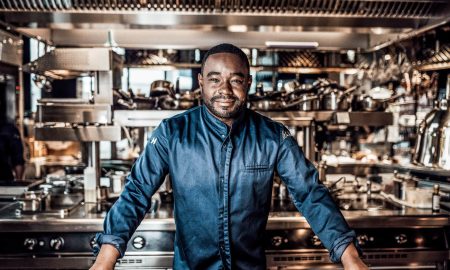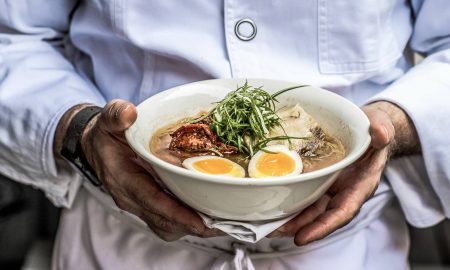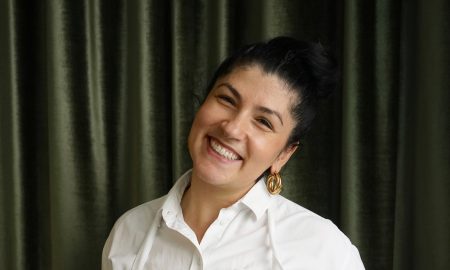As a boy in St. John’s, on the island of Newfoundland in Canada, Jonathan Gushue had wanderlust. Traveling to Europe with his father as a child inspired dreams of distant shores, and when he was 13, he left home to attend boarding school in Toronto and, later, New York State. Now one of Canada’s most acclaimed chefs, he got his start in the hospitality world washing dishes at a hotel during high school. Since then, his career has taken him far and wide – first, to northern Ontario, and then to Japan and the UK before he returned to North America in the early 2000s.
“I grew up being told that I should leave Newfoundland,” he recalls. “There weren’t very many opportunities.”
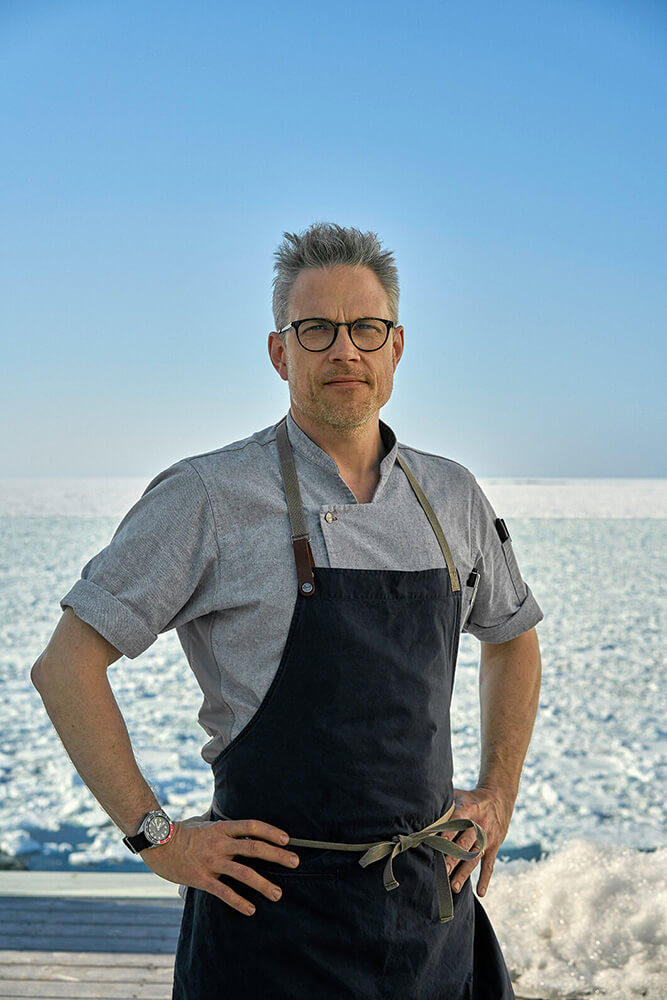
Jonathan Gushue / Image: Fogo Island Inn
After a series of life events reminiscent of scenes from a modern-day Odyssey, the 48-year-old chef has found a new home in his native province – one that is near his birthplace of St. John’s, yet feels a million miles away – as executive chef at the magnificent Fogo Island Inn, located on a remote island off the northeastern coast of Newfoundland. With a scant population of 2,300 people, the windswept Canadian outpost comprises 11 communities with quaintly poetic names such as Little Seldom, Tilting and Joe Batt’s Arm. Icebergs drift along the rocky shoreline, while caribou nestle together by the road.
Strict work ethic
Gushue has the wholesome good looks of an actor playing a doctor on television, with a shock of silver hair and glacial blue eyes behind black-framed spectacles, and he speaks in a soft voice with disarming frankness. His father, a stern man who devoted Saturdays to preparing Vichyssoise and Mediterranean fish stews, instilled in him an appreciation for food – as well as a strict work ethic – at a young age.
“My father was adamant that you had to work, but I never knew that you could enjoy work. I was very intimidated by him; he was a Rhodes scholar and chief justice in Newfoundland. Beyond food, we didn’t have much in common, but we’d drive 200 miles for a bowl of pea soup,” he says, describing the impact of lessons gleaned from his dad in the kitchen. “I relied on everything my father taught me and did OK. I still use his recipes today.”
Although he’d always enjoyed cooking, he hadn’t planned on becoming a chef. But after realizing, “the fastest growing industry in North America was hospitality,” he began studying hotel management at Georgian College in Barrie, Ontario. Soon, he landed a job at a Four Seasons resort in Ontario. While here, he befriended colleagues who recruited him to help open a hot springs resort in Tochigi Prefecture, three and a half hours north of Tokyo.
Two years in Japan taught him the importance of seasonality, as well as the basics of budgeting and how to deal with the challenges of providing round-the-clock service for more than 800 guests a night. The experience also honed his patience and ability to focus.
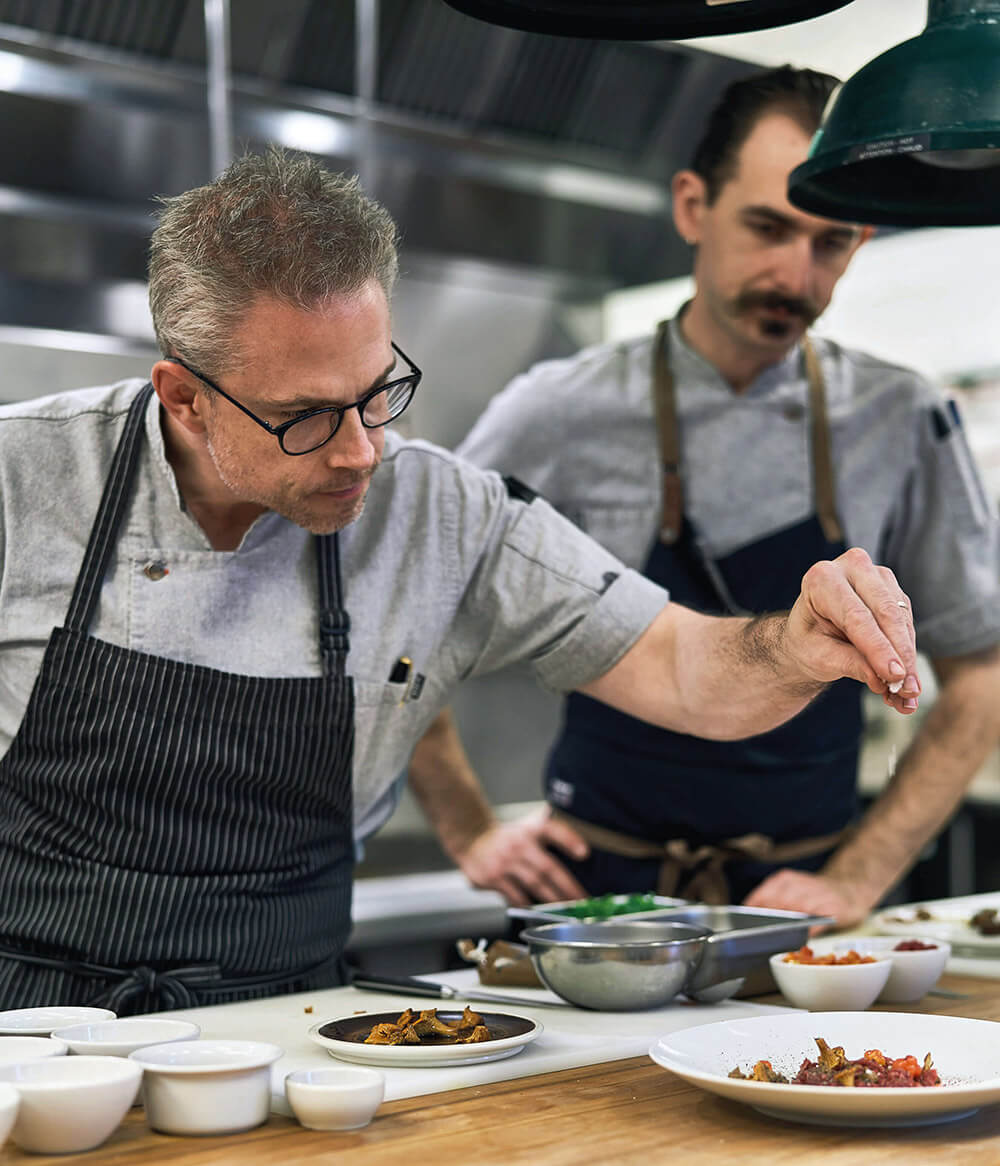
Image: Hé Photographes
“It was very difficult at first. Culture shock was an understatement,” he says. “Peeling melons for 14 hours a day was trying, but I wouldn’t take it back because I learned everything about knives. We did a lot of pates, terrines and fish terrines, so there was a lot of fine cutting. One day, the kacho (manager) came in and said, ‘We’re removing all the slicers until Jonathan can learn to slice by hand.’”
From Japan, he moved to the UK, working under Michael Kitts in Bristol at the Swallow Royal Hotel. He spent three and a half years at the Four Seasons Hotel London at Park Lane with celebrity chef Jean-Christophe Novelli, where he says he was able to concentrate on good products. “I had never seen foie gras before. Working with Jean-Christophe was all about flavor,” he says.
He felt unprepared for the job but stuck with it. “I wanted more and was never happy with where I was. I never looked before I leapt. That may have given me an advantage because I put myself in positions where I was surrounded by people much better than me, and I had to deal with it,” he says.
After returning to Canada to be an executive sous-chef at Four Seasons Hotels in Vancouver and Toronto, in 2005 he took a position at Langdon Hall in Cambridge, Ontario, an hour outside of the capital. Langdon Hall, which currently ranks No. 4 among Canada’s 100 best restaurants, is where Gushue made his name as the executive chef, and a string of accolades – Canadian Chef of the Year 2010, as well as Ontario Chef of the Year 2011 – followed.
Under pressure
However, in 2013 he made headlines for disappearing on a 13-day bender – a public culmination of his lifelong struggles with alcohol.
When asked if working in the restaurant world, where substance abuse and burnout are rife, led to the breakdown, Gushue replies: “I put alcohol where relationships should have been. The problem had nothing to do with meJonathan being in hospitality.” Although he may have coped with the stress of running a high-profile restaurant, he admits that the pressures of new-found celebrity and social anxiety were hard to bear.
“When all of a sudden people were interested in what I was doing, I had to do all these things and go to these events, but it was like hell on earth. I was terrified,” he explains.
Gushue has been sober for six years and says that the keys to overcoming alcoholism have been learning to foster relationships and a sense of community. Working at Fogo Island Inn, which he joined two years ago after leaving The Berlin, a restaurant he co-founded in Kitchener, Ontario, has given him both.
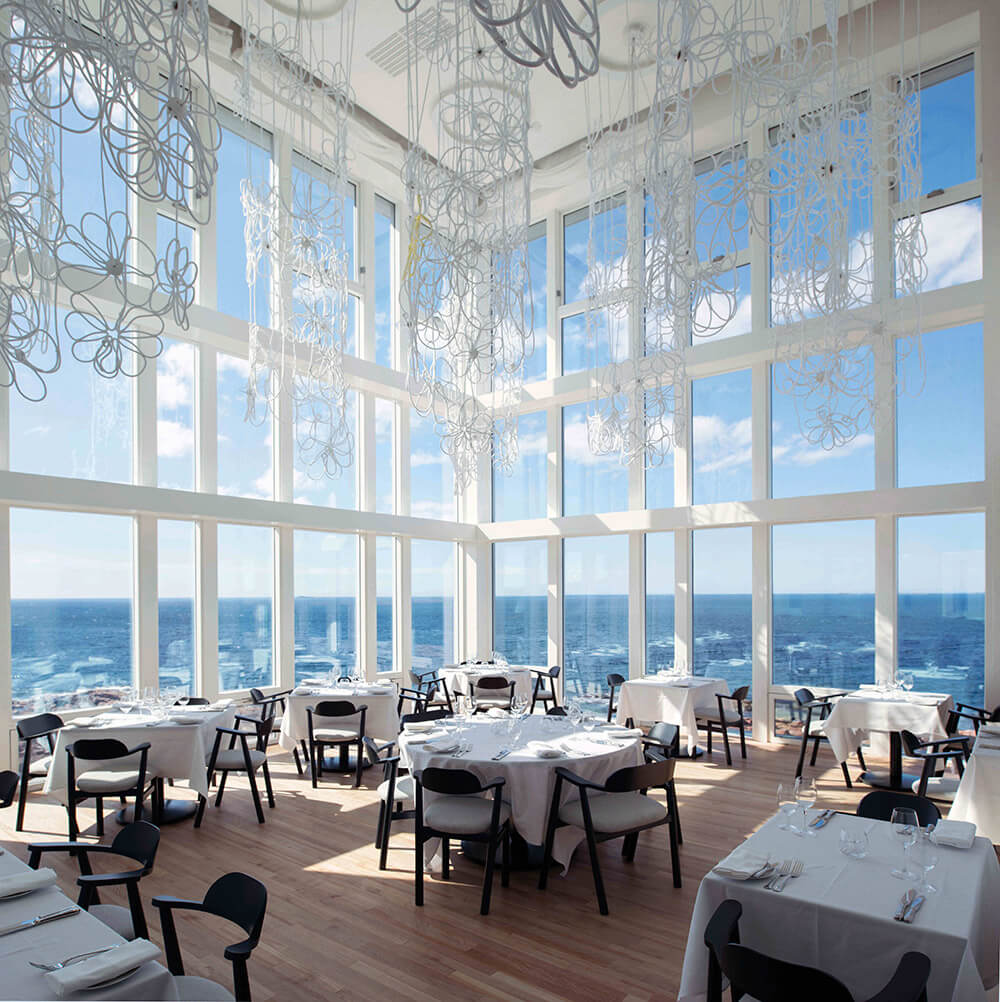
Fogo Island Inn / Image: Alex Fradkin
The brainchild of Fogo Island native and entrepreneur Zita Cobb, the hotel – a stunning example of contemporary architecture designed by Todd Saunders (also a Newfoundland native) – is part of a social initiative to revive the island’s economy, which collapsed along with the cod fishing industry in the 1990s. The project employs locals, who work at the hotel and guide visitors on excursions that explore the culture and landscape.
Gushue’s creative cooking, which draws upon local ingredients and food traditions, is now making the hotel an exciting culinary destination.
“Before, I worked so much and when I wasn’t working, I drank. But now there’s more to it. What a great world this is, I want to take the time to experience it,” he says. “I just want to do my best.”







